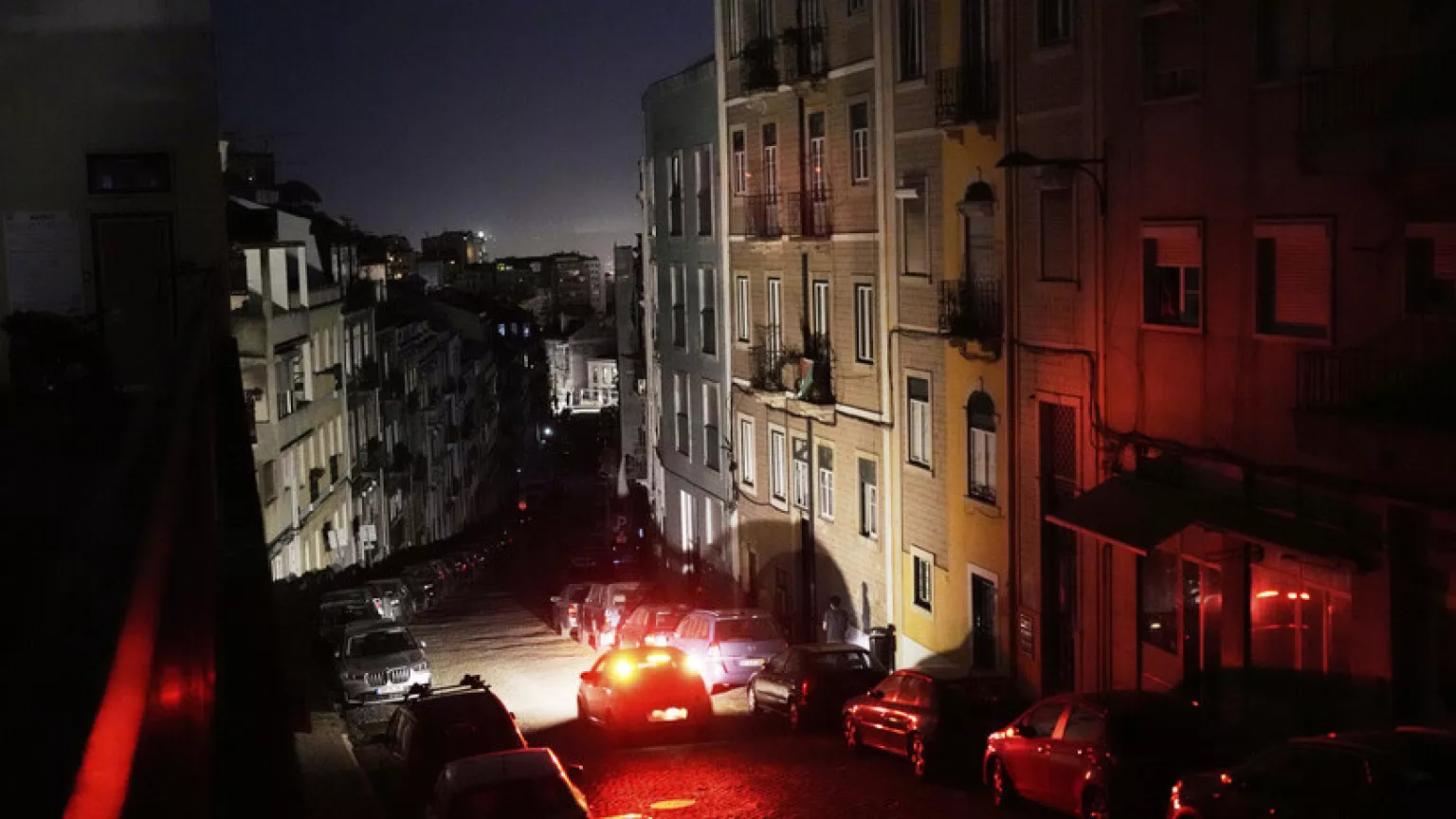A sudden and widespread power outage in Spain and Portugal disrupted millions across the Iberian Peninsula. Here’s what caused the blackout and how Europe is responding to the energy crisis.
On April 28, 2025, an unexpected and widespread power outage in Spain and Portugal left millions without electricity and ignited a continent-wide debate about energy infrastructure. The blackout, which affected major cities like Madrid, Barcelona, Lisbon, and Porto, is being labeled one of the most disruptive in recent European history.
As electricity was suddenly cut off in residential, commercial, and public service areas, transportation systems ground to a halt, hospitals switched to backup power, and millions turned to social media to understand the scope of the crisis. The blackout in Spain and Portugal came without warning, underscoring serious vulnerabilities in Europe’s energy systems.
Spain Power Outage Today: What Went Wrong?
According to officials from Red Eléctrica de España and REN, Portugal’s national energy operator, the root of the issue lies in a fault in the high-voltage transmission network. These faults triggered a cascade of failures throughout the Iberian Peninsula. While technical explanations are still unfolding, there are multiple theories behind the incident:
- Malfunction of critical transmission lines
- Increased pressure on the grid due to unseasonal heatwaves
- The possibility of “induced atmospheric vibration,” a rare but disruptive atmospheric phenomenon
The result was an almost complete shutdown of the energy grid across both Spain and Portugal for several hours.
Impact Across Spain: Madrid and Barcelona Hardest Hit
The blackout severely affected Madrid and Barcelona, Spain’s two largest cities. Public transportation was crippled, traffic lights failed, and metro stations were plunged into darkness.
At the same time, ongoing events such as the ATP Madrid Open and the Mutua Madrid Open were disrupted. Spectators and players, including Frances Tiafoe, were left in confusion as stadium lights flickered and went out mid-match.
Local governments activated emergency protocols, but the lack of preparedness was evident. Many residents were unable to access basic services, with hospitals relying on limited generator power and communication services temporarily offline.
Portugal Power Outage: Lisbon and Porto in Crisis
Portugal faced similar disruptions. Cities like Lisbon and Porto experienced full electrical outages, bringing business operations and public transportation to a halt. The power outage in Portugal emphasized how deeply connected the two countries are in terms of grid infrastructure.
Citizens flooded social media with hashtags like #PortugalBlackout and #PowerOutagePortugal, demanding answers and urging government accountability.
A Broader European Power Outage Threat?
This was not just an Iberian crisis. Reports of minor disturbances came in from France and Germany, raising concerns that the entire European electricity network is more fragile than previously thought. The potential for a European power outage stemming from a localized issue in Spain or Portugal has energy experts calling for immediate action.
Cybersecurity professionals and energy analysts are now investigating whether any form of sabotage or cyberattack may have contributed to the crisis. While no evidence currently supports this, the fear of a broader European blackout remains high.
Satellite Imagery Reveals the Scope of the Spain and Portugal Power Outage
Real-time satellite imagery released shortly after the incident showed vast areas of darkness across Spain and Portugal. While much of Europe remained lit, the Iberian Peninsula was visibly darkened, reinforcing the magnitude of the event.
The blackout in Spain and Portugal has renewed interest in developing real-time monitoring tools and alert systems that can better predict and respond to such emergencies.
Spain Electricity Grid: Outdated or Overloaded?
The crisis has sparked a national conversation in Spain regarding the reliability of its electricity infrastructure. Critics argue that years of underfunding and a slow transition to renewable energy left the grid vulnerable.
Renewable energy advocates point to the need for decentralized systems and local energy storage. Industry leaders are calling for a complete audit of Spain’s electricity infrastructure and a faster pivot toward solar and wind energy backed by smart grid technology.
How Businesses Are Responding to the Spain and Portugal Power Outage
Companies in digital services, e-commerce, and cloud infrastructure faced immediate challenges. With servers and internet routers offline, business continuity plans failed in many sectors. Marketing agencies and tech firms, particularly those in Barcelona and Madrid, are reevaluating their disaster recovery protocols.
Marketing companies are now urging clients to adopt geo-distributed cloud solutions, generator backups, and real-time status dashboards. These services not only protect against outages but also enhance brand reputation during crises.

Europe Blackout Risk: Lessons for the Future
This incident is a stark reminder that the European energy grid is a single interconnected ecosystem. While this interconnectivity brings efficiency, it also introduces collective risk. The power outage in Spain and Portugal has prompted the European Union to expedite infrastructure resilience programs and cross-border emergency cooperation plans.
Energy ministers from Spain, Portugal, France, and Germany are expected to meet in Brussels next week to establish a continental strategy to avoid a future blackout in Europe.
A European Energy Wake-Up Call
The April 2025 blackout in Spain and Portugal was more than just an isolated event; it was a wake-up call for the entire continent. From businesses to policymakers, the realization is clear: Europe must invest in resilient, modern, and secure energy infrastructure.
For Spain and Portugal, this crisis could be the catalyst needed to accelerate energy reforms and embrace a future powered by renewables and fortified by digital intelligence.
As investigations continue, one thing is certain—Europe can no longer afford to treat power outages as rare accidents. They are risks we must be ready to face head-on.
